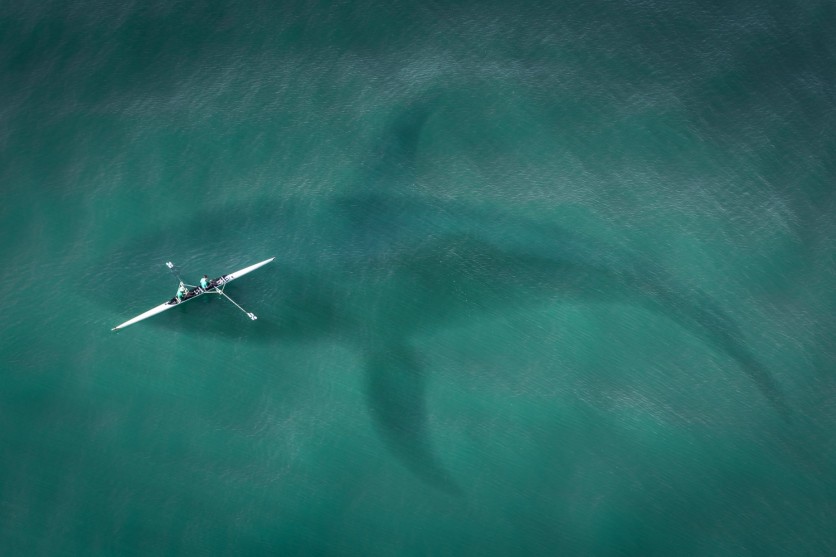Its mouth completely agape, the world's biggest fish swims slowly through the sea. As they glide through the water, they clear out it through their large maws.

These unusual creatures are whale sharks and other endangered species that live in tropical waters. Many people know a little about these marine giants: Whale sharks consume plankton and make a yearly migration to Australia.
But there is an essential detail about these animals that has wholly eluded researchers: Their age. Like other sharks and rays, whale sharks don't have the bones that help scientists check the ages of other fish.
But there may be a manner to get a correct age estimate for the whale shark, after all. The solution comes in the shape of a bizarre mashup of Cold War records and marine science.
Rings are the key
Unexpectedly, the fallout of Cold War nuclear bomb tests have helped researchers nail down the age of whale sharks for the first time.
In a new study, scientists used carbon courting to know the whale shark's new, inner ring each year that determine the age of an individual.
Here's why the bombs have the key: Testing these bombs has left a specific, high impression of a shape of carbon, an isotope known as carbon-14. This isotope is more typically used by archaeologists to further their dig findings. By tracing the carbon-14 ranges within the sharks' increase rings, researchers could pinpoint the circles that corresponded with a nuclear test. Knowing while the rings have been created could reveal the age of the animal.
The findings remedy a long-lasting underwater mystery, settling a debate among researchers approximately how often these boom rings are deposited.
The findings were published on Monday in the magazine Frontiers in Marine Science.
Bombs in the air tell the time in the ocean
The United States, Soviet Union, United Kingdom, France, and China all performed nuclear weapons assessments between the 1950s and 1960s.
Sometimes one's explosions befell several kilometers up in the air. But the fallout from the bombs traveled downward. And today, it serves a crucial function in research.
When radioactive fallout from explosions drifted from the air into the ocean, carbon-14 left its mark in marine life, making its way for the duration of the food web. Even today, these heightened stages of carbon-14 persist within the ocean.
This sluggish decay acts as a timer; researchers compare the amount of carbon-14 decay against the substance's half-lifestyles to determine the age of a sample.
In the new research, the crew used carbon-14 stages in successive boom bands of whale shark specimens, which had been stored in Pakistan and Taiwan. By being able to tell whilst the bands were created, they might tell the age of the animals - and resolve the scientific mystery.
Putting to rest a fishy debate
Scientists reading the whale shark already knew that, like trees or teeth, the fish add more distinct internal bands within its cartilage over time. But researchers have been split on how the rings have been accumulated.
Some research advised the rings have been laid down annually, but different findings put the frequency at every six months. Now, the debate is over.
In a statement, lead author Mark Meekan, a researcher at the Australian Institute of Marine Science, claimed they noted one growth ring being deposited every year.
Having a better experience of a whale shark's lifespan ought to resource conservation efforts for the endangered animal.
"This is very important, because if you over- or under-estimate growth rates, you will inevitably end up with a management strategy that doesn't work, and you'll see the population crash," Meekan said.
The new research confirms earlier research suggesting these fish can live for an extended time. One of the specimens examined died at age 50. But now researchers can say genuinely that some whale sharks live to be a hundred years old.
Meekan said their study shows that adult sharks can indeed attain great age and that long lifespans are probably a feature of the species.
"Now, we have another piece of the jigsaw added."




![Most Useful Google Chrome Keyboard Shortcuts You Need to Know to Improve Your Browsing Experience [2024]](https://d.techtimes.com/en/full/449047/most-useful-google-chrome-keyboard-shortcuts-you-need-know-improve-your-browsing-experience-2024.jpg?w=184&h=103&f=476d29fd60df70a67f6679f99a2ca6d0)